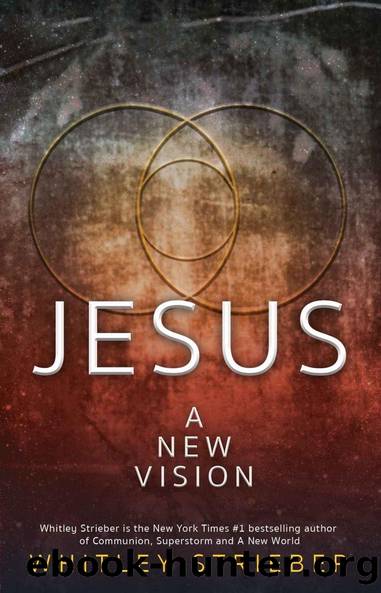Jesus: A New Vision by Whitley Strieber

Author:Whitley Strieber [Strieber, Whitley]
Language: eng
Format: epub
ISBN: 9781734202847
Publisher: Walker & Collier, Inc.
Published: 2021-01-15T00:00:00+00:00
9
The Passion Part One: Temporary King
There was almost certainly a teacher and political figure called Jesus, probably a carpenter, but just possibly a royal person, who died on a cross outside of Jerusalem. As we have seen throughout, there was and is also another Jesus, who is a vibrant archetype that seems to be touched by some mysterious level of consciousness that we might as well call divine. Almost as if it was copied from the past, his life contains eerie reflections not only of the life of Pythagoras, but also of those of the resurrection deities who came before him, gods such as Osiris, Adonis, Dionysus, and Mithra. The Jesus story probably touches history insofar as it retains at least the basic narrative of a real life, but the other Jesus, the one who lived in the teaching, has been buried beneath doctrine that can no longer feed our souls, and perhaps never really could lead us to the understanding that the Thomas and Mary gospels promise.
There is something about Jesus that is radically different from the other resurrection deities. First, he was almost certainly realâa simple carpenter, or somebody posing as such, who had absolutely startling insight into the life of the soul and the way of heaven. Second, the influence he has had in the world is greater than that of any other deity, philosopher, political leaderâanybody at all. This apparent carpenter, who was probably illiterate and died as a criminal in an obscure corner of a forgotten empire, is the most influential human being who ever lived.
The resurrection gods are called scapegoats because they come forth and give their lives on behalf of the community. This why their symbolic food is bread, the staff of lifeâwhy, for example, both Adonis and Jesus share the same symbolic birthplace, a cave near Bethlehem, the House of Bread. âTake and eat, for this is my body,â said Jesusâan offering common, in one way or another, to all of the agricultural gods.
Only this was apparently not simply a story element, added after his death. What is so strangeâand so very differentâabout the Jesus story is that he might have actually very intentionally enacted the ancient death and resurrection drama of the scapegoat gods in the real world.
There are things about his story that do not fit any current theory about him, not that he was god incarnate, not that he was an ordinary political revolutionary, none of the theories. To bring these things into focus is going to take detective work, and a dive into the deepest waters of spiritual search that exist, all the way back to our very earliest records of humanityâs quest for truths that are eternal.
Unfortunately, when the emperor Constantine proclaimed himself a follower of Jesus as a god in October of 312 A.D., the old polytheism was violently rooted out. Its temples and books were destroyed and the age-old mystery cults that could have given us some clues to what the earlier resurrection gods meant to their worshipers were obliterated.
Download
This site does not store any files on its server. We only index and link to content provided by other sites. Please contact the content providers to delete copyright contents if any and email us, we'll remove relevant links or contents immediately.
Fearfully and Wonderfully Made by Philip Yancey & Paul Brand(588)
Christian Ethics by Wilkens Steve;(572)
Numbers by Ronald B. Allen(504)
The World from 1450 To 1700 by Wills John E.;(500)
Christian Ethics: An Introduction to Biblical Moral Reasoning by Wayne Grudem(478)
How to Read Slowly by James W. Sire(458)
God and the Multiverse by Victor J. Stenger(449)
Morality by Jonathan Sacks(432)
Monastic Archaeology by Unknown(408)
The Disabled Church by Rebecca F. Spurrier;(397)
Jesus: A New Vision by Whitley Strieber(371)
Critical Writings by Joyce James;(368)
Death of the Doctor by Unknown(367)
Redeeming Sociology by Vern S. Poythress(366)
Amish Grace by Donald B. Kraybill & Nolt Steven M. & Weaver-Zercher David L(365)
The Technological System by Jacques Ellul(353)
Children of Lucifer; The Origins of Modern Religious Satanism by Ruben van Luijk(353)
The Catholic Case for Trump by Austin Ruse(334)
The Church in the Early Middle Ages by G.R. Evans(333)
